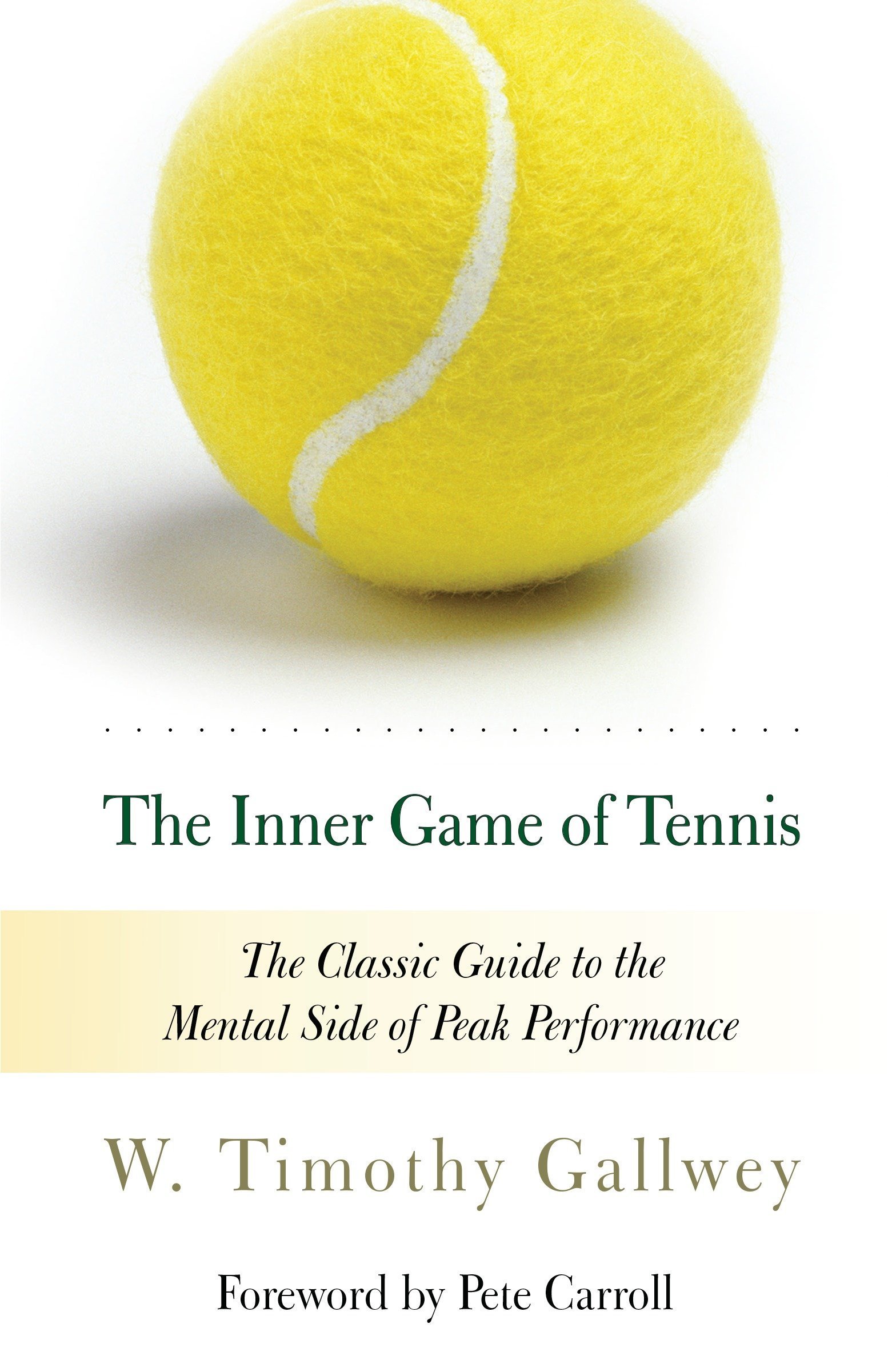The Inner Game of Tennis
Hardcover | Paperback | eBook | Audiobook
Things I Highlighted is a bulleted list of particular sentences in a book that stuck out to me. These cannot be viewed as general summaries of books, but rather parts of books that struck me in a way that demanded more of my attention. Typically I share one thing I highlighted from each chapter, so they will appear in the same order they appear in the book. This version of Things I Highlighted will cover The Inner Game of Tennis, a book that uses tennis as a medium to unlock the mental side of peak performance.
Chapter 1: Reflections on the Mental Side of Tennis
Perhaps a better way to describe the player who is "unconscious" is by saying that his mind is so concentrated, so focused, that he is still. It becomes one with what the body is doing, and the unconscious or automatic functions are working without interference from thoughts.
Chapter 2: The Discovery of the Two Selves
In other words, the key to better tennis—or better anything—lies in improving the relationship between the conscious teller, Self 1, and the natural capabilities of Self 2.
Chapter 3: Quieting Self 1
Be clear about this: letting go of self-judgments does not mean ignoring errors. It simply means seeing events as they are and not adding anything to them.
Chapter 4: Trusting Self 2
As this step occurs, trust is developed, and eventually the basic but elusive ingredient for all top performance emerges—self-confidence.
Chapter 5: Discovering Technique
Use outside models in your learning, but don't let them use you. Natural learning is and always will be from the inside out, not vice versa. You are the learner and it is your individual, internal learning process that ultimately governs your learning.
Chapter 6: Changing Habits
Tips are a dime a dozen, and there are good ones and bad ones. But what is more difficult to come by is a workable way to apply tips, to replace one pattern of behavior with a new one.
It is in the process of changing habits that most players experience the greatest difficulty. When one learns how to change a habit, it is a relatively simple matter to learn which ones to change. Once you learn how to learn, you have only to discover what is worth learning.
Chapter 7: Concentration: Learning to Focus
Most of our suffering takes place when we allow our minds to imagine the future or mull over the past. Nonetheless, few people are ever satisfied with what is before them at the moment. Our desire that things be different from what they are pulls our minds into an unreal world, and consequently we are less able to appreciate what the present has to offer. Our minds leave the reality of the present only when we prefer the unreality of the past or future.
Chapter 8: Games People Play on the Court
We live in an achievement-oriented society where people tend to be measured by their competence in various endeavors. Even before we received the praise or blame for our first report card, we were loved or ignored for how well we performed our very first actions. From this pattern, one basic message came across loud, clear and often: you are a good person and worthy of respect only if you do things successfully.
Chapter 9: The Meaning of Competition
True competition is identical with true cooperation. Each player tries his hardest to defeat the other, but in this use of competition it isn't the other person we are defeating; it is simply a matter of overcoming the obstacles he presents. In true competition no person is defeated. Both players benefit by their efforts to overcome the obstacles presented by the other. Like two bulls butting their heads against one another, both grow stronger and each participates in the development of the other.
Chapter 10: The Inner Game Off the Court
Focus of attention in the present moment, the only one you can really live in, is at the heart of this book and at the heart of the art of doing anything well. Focus means not dwelling on the past, either on mistakes or glories; it means not being so caught up in the future, either its fears or its dreams, that my full attention is taken from the present.
